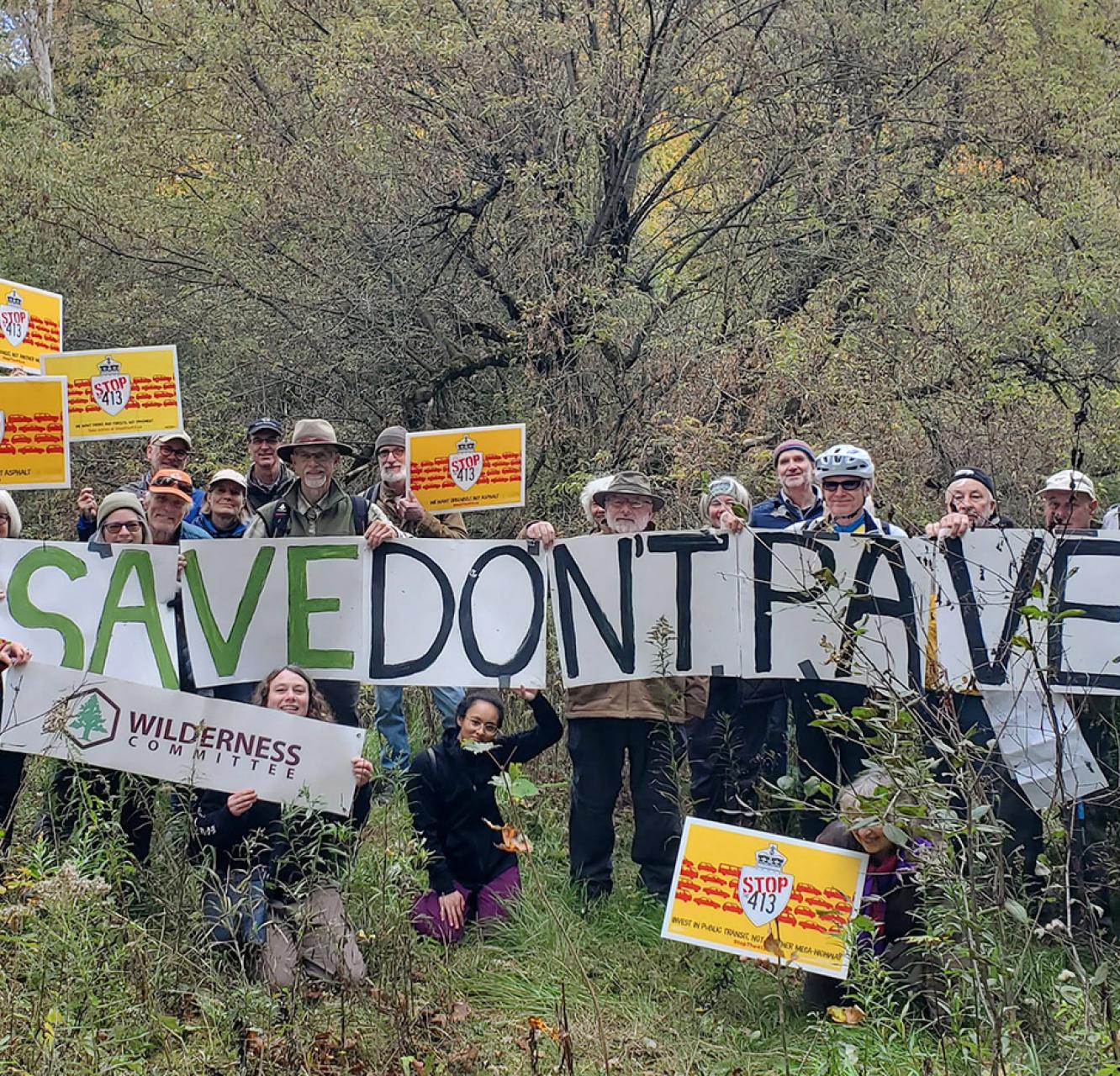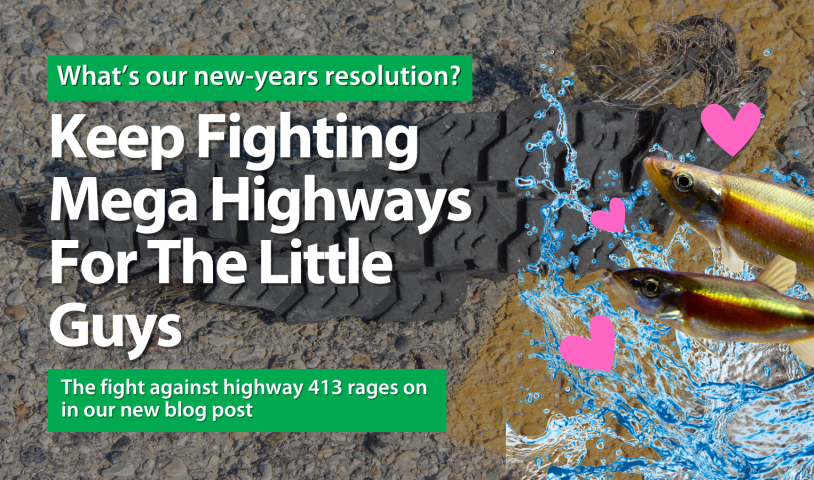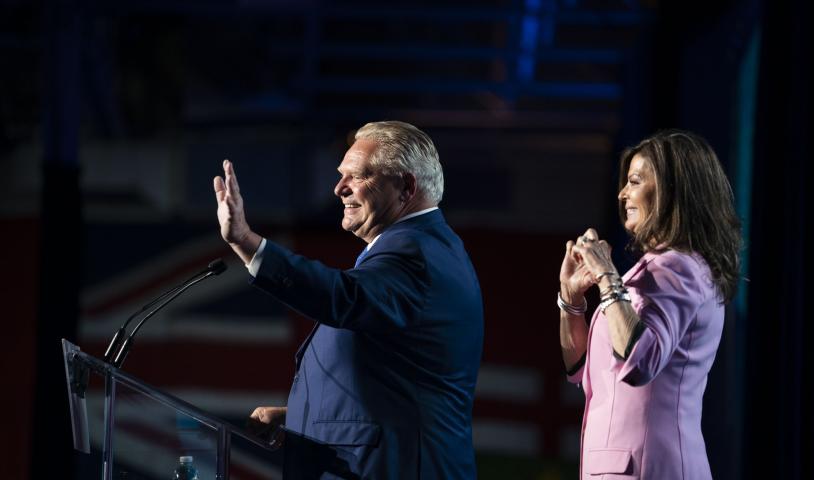The Greenbelt and Beyond: Lessons from a win
Wednesday, October 4, 2023
People power stopped Greenbelt giveaways
As the dust settles on the nearly year-long debacle of the Ford government’s failed attempt to open the Greenbelt in Ontario for sprawl development, it’s crucial to take stock of the lessons learned for environmental protection in the province.
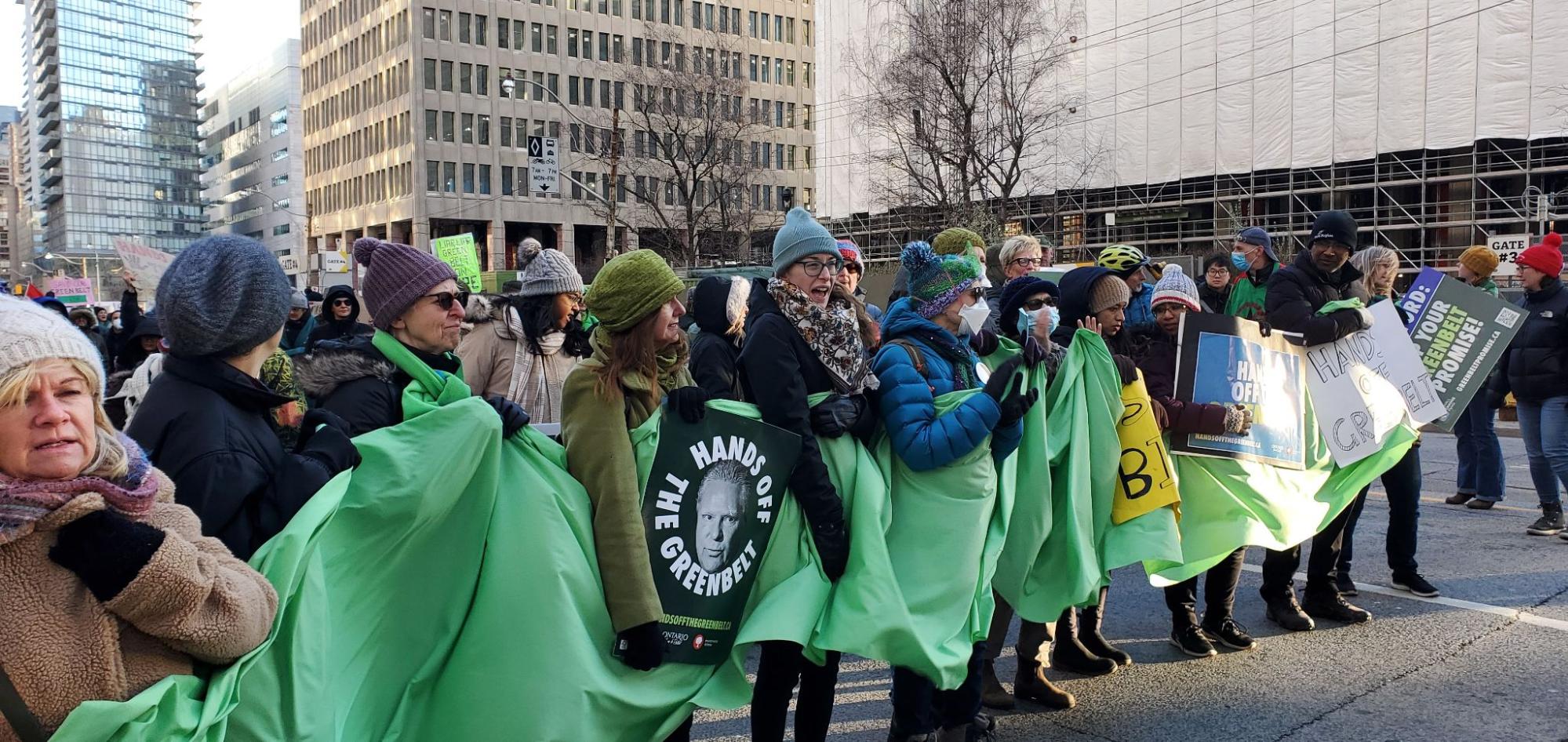
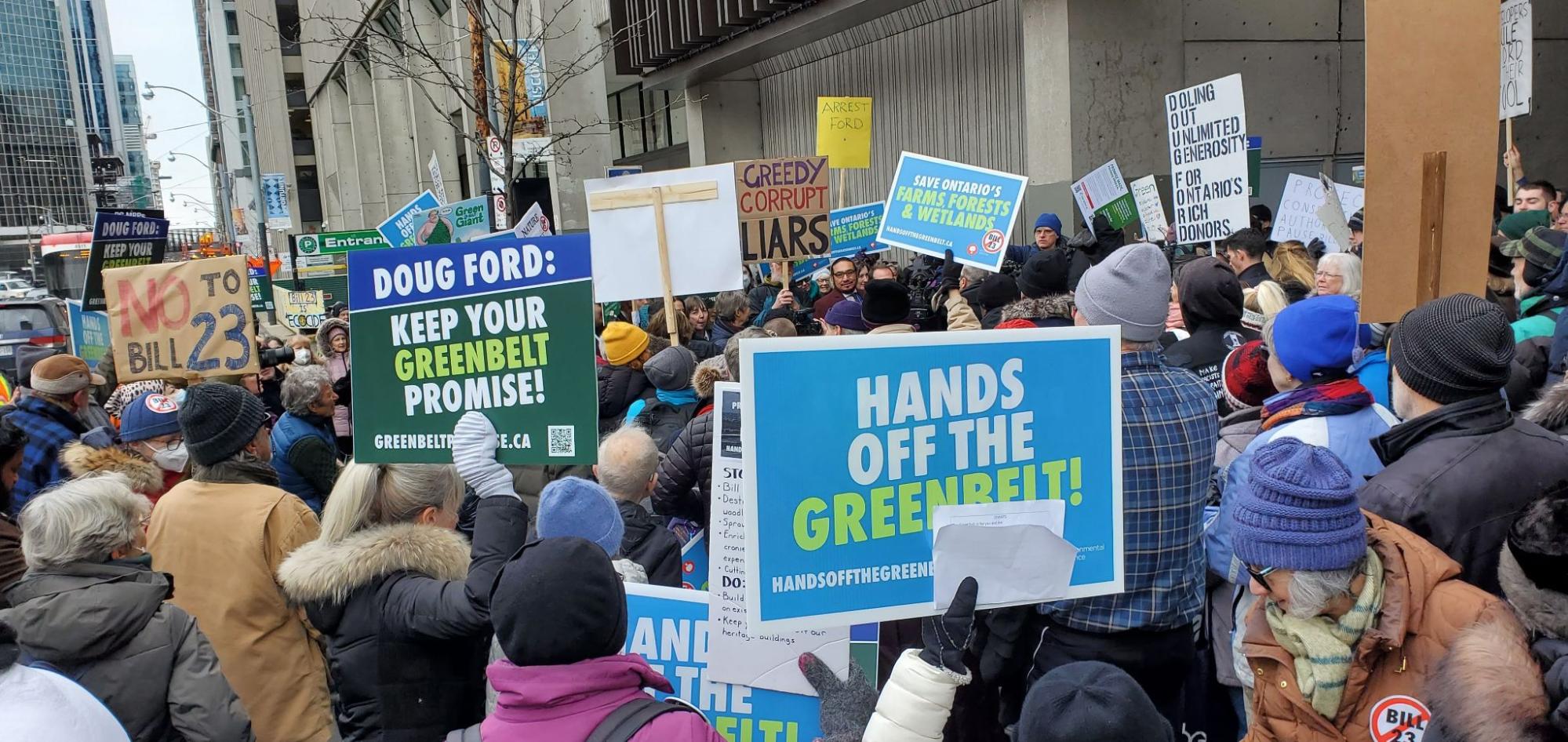
While we celebrate the restoration of all Greenbelt lands and the massive public engagement that forced Premier Ford to recant his mistake, we also need to recognize this never should have happened.
The vast majority of Ontarians have supported the Greenbelt since its establishment in 2005, along with the associated Oak Ridges Moraine and Niagara Escarpment protections. And for good reasons: the lands were carefully selected through a process that involved experts in hydrology and ecology as well as local citizens to protect vital near-urban farmland, wetlands, watersheds, natural heritage and wildlife. Both Doug Ford and his now-resigned Minister of Municipal Affairs and Housing, Steve Clark publicly promised to “not touch the Greenbelt” because they knew it would be politically unpopular. But then, they did it anyway. The result was a colossal waste of public resources and time just to maintain the status quo.
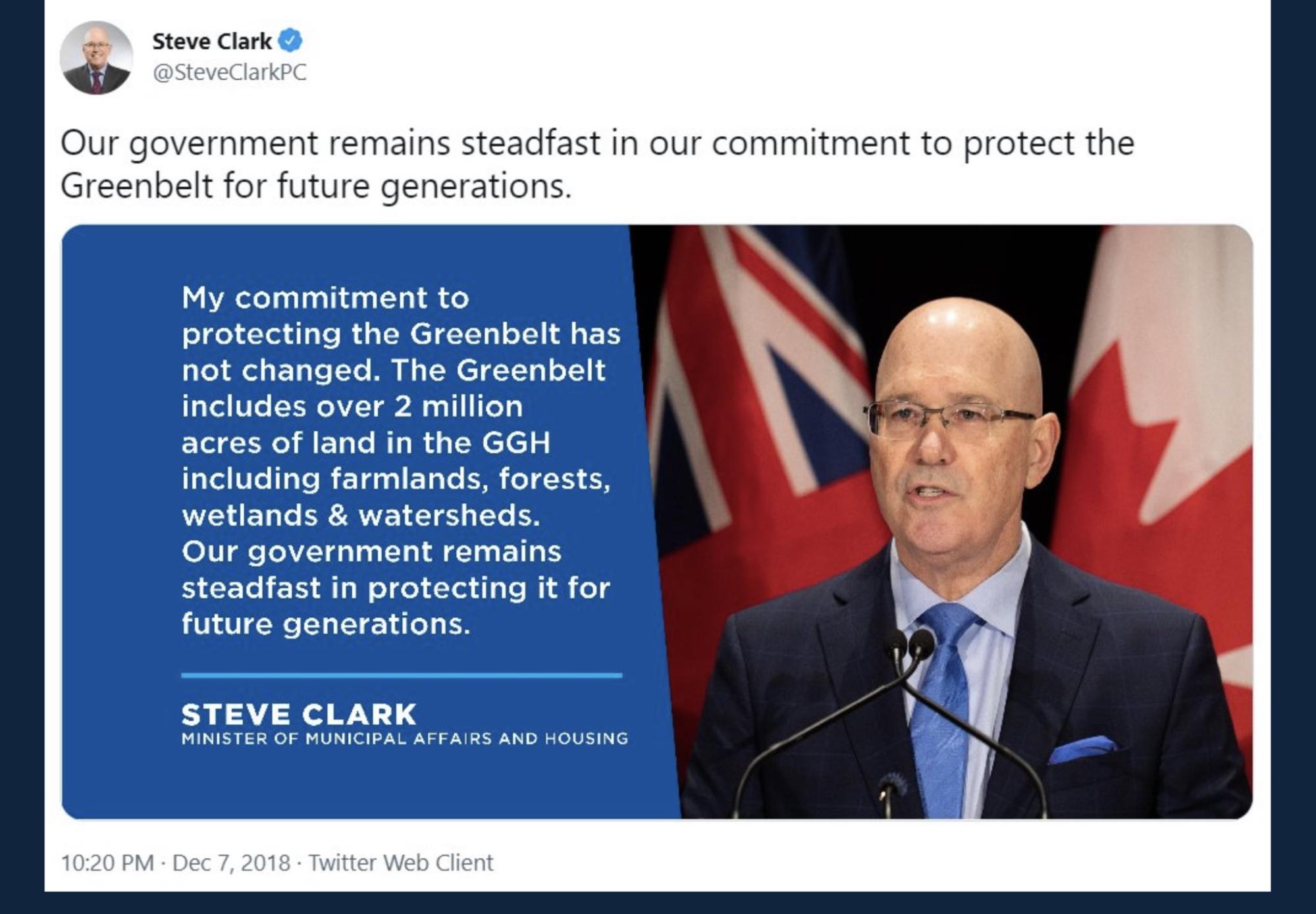
Meanwhile, an onslaught of lesser-known Ford government cuts to environmental protections remain on the books or in the works.
To name just a few:
- Proposals for new mega-highway 413 and Bradford Bypass, both of which cross Greenbelt land
- Forced expansion of municipal urban boundaries and gutting science-based wetland evaluations through Bill 23
- Proliferation of the province’s use of Minister’s Zoning Orders (MZOs) to bypass the established process for development proposals
- Changes to the province’s Endangered Species Act that make it easier to get permits to destroy species at risk habitat
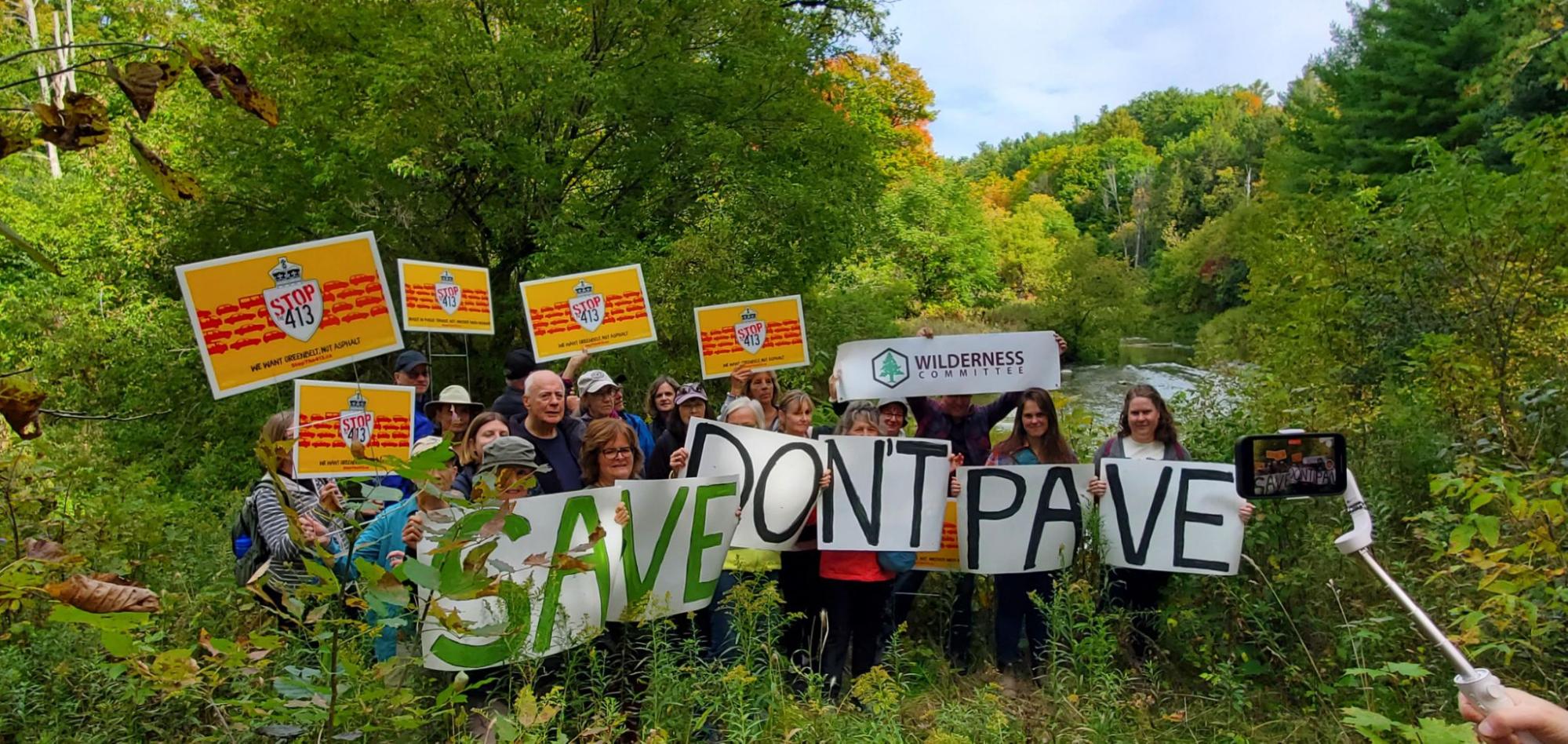
Those of us that stood up for the Greenbelt and the life-sustaining biodiversity and natural services it provides should savour that victory, but we need to stay focused on the fights ahead. We must continue to talk to our friends, family and neighbours and organize strategically to advocate for all the natural areas and environmental protections we need. Here are a few lessons we see in the Greenbelt win to carry forward:
Lesson 1: We need to draw on experts, especially when the province does not.
A large factor in the successful public resistance to the Greenbelt takeouts was the fact the government’s own Housing Task Force clearly stated that protected lands were not necessary to build the homes the province needs to accommodate population growth, and that diverting limited building resources to under-serviced areas would exacerbate the affordable housing crisis. This stifled Ford’s attempts to spin the story as housing vs. environment, and also helped unite environmentalists, farmers and housing advocates.
But this is not the only time the Ford government has disregarded the role of experts in informing policy. Bill 23, the “Build More Homes Faster Act”, knee-capped the established science for evaluating wetlands and removed Conservation Authorities as advisors to municipalities on development impacts to watersheds. Highway 413 was rejected by the previous government after an independent panel concluded it would save drivers less than a minute a day, but that didn’t stop the Ford government from reviving it. Ford has also attempted to hide reports the public paid for, such as the grim provincial climate change impact assessment that was only released eight months after government received it, and the recommendations from the working group on growing protected areas. We could go on, but the point is as environmental advocates we need to seek out and make known the facts to bolster our efforts to block the government’s environmentally destructive plans.
Lesson 2: Watchdogs are necessary
The investigations by Ontario’s auditor general and ethics commissioner were key in revealing the faulty processes behind the Greenbelt removals, along with investigative journalism. We must continue to draw on these key watchdogs to hold the government accountable to its decision-making and duties, especially since Ford still refuses to release the mandate letters to his Ministers. We recommend keeping abreast of the critical environmental reports prepared on a regular basis by the office of the auditor general.
Lesson 3: We must engage with local MPPs, municipal and federal governments
In his speech reversing the Greenbelt giveaways, the premier cited the pressure MPPs were getting from constituents as a key reason for his reversal. Public pressure also prompted the federal Minister of Environment to assess the impacts of Greenbelt development in the Duffins Rouge Agricultural Preserve, adjacent to Rouge National Park. Pushback from municipalities, most notably in Hamilton, also contributed to making the government’s plans untenable. To get the results we need to protect nature and take strong climate action, we must continue to make our voices and priorities heard to all levels of government.
Lesson 4: Indigenous rights need to be prioritized
Indigenous leadership was also pivotal in raising concerns around the Greenbelt giveaways from another important rights perspective. Both the Chiefs of Ontario and Six Nations formally condemned the takeouts and the lack of Indigenous consultation. Going forward, settler environmental advocates must build relationships of allyship to support and bring to the forefront Indigenous critiques of the province’s consultation processes with First Nations around land and water-use decisions.
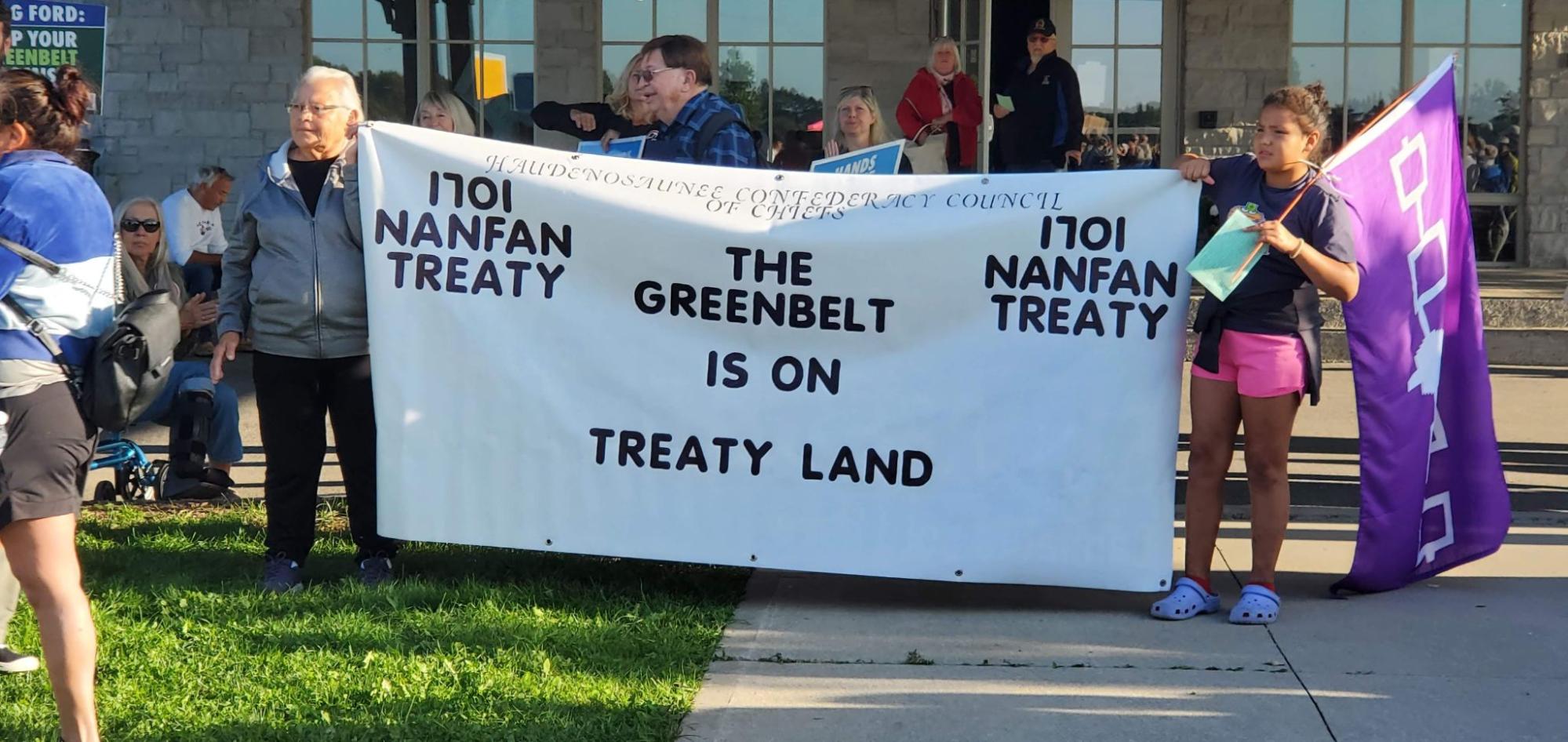
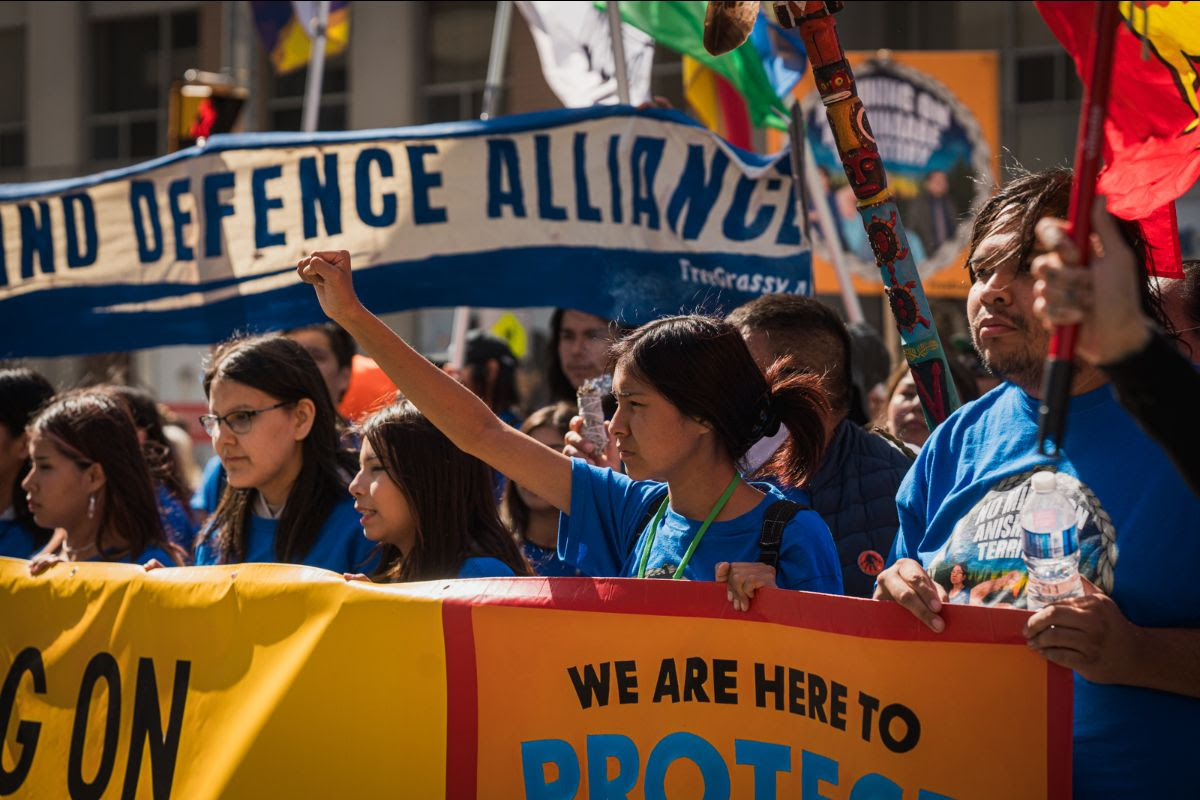
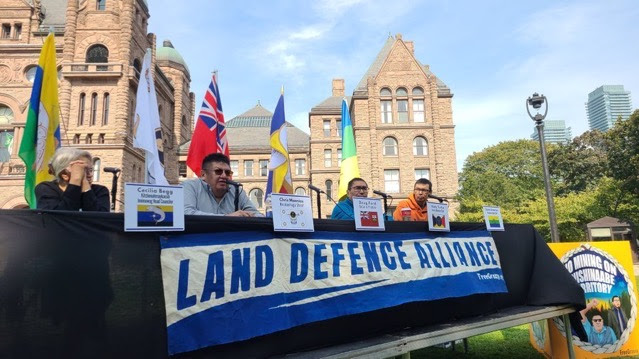
Lesson 5: We can’t win if we don’t fight!
To tell the truth, like most we were shocked by Premier Ford’s Greenbelt reversal announcement. Despite the mounting pressure, this win was unexpected. It just goes to show how important it is to never give up. But there is still so much more work to be done in Ontario: to grow protected places, secure nearby nature, strengthen protections for species-at-risk, build clean energy and regulate destructive industry. We hope these lessons will inspire you to get involved, organize and mobilize for nature along with us.

